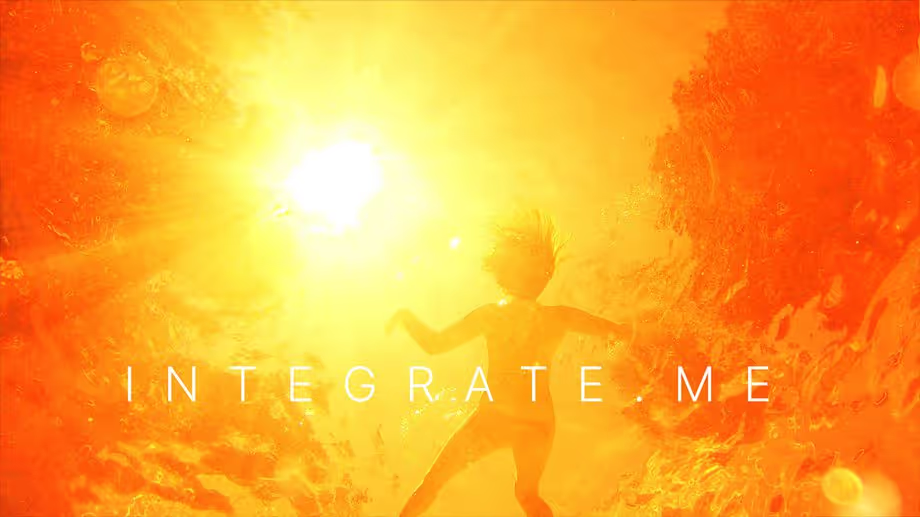Integrate.Me Lesson Plan: Stop Saving Face Resources and Standards
Resources and Standards

Resources
The following program contains mentions of childhood trauma and suicide, which some viewers may find troubling. Viewer discretion is advised. If you're looking for someone to talk to here are two resources:
@trevorproject @suicidepreventionhotline
Please take care of yourself, support is here:
The TrevorLifeline 866. 488. 7386
24/7/365 crisis intervention and suicide prevention lifeline for LGBTQ young people.
Otherly Documentary Series
https://mediaspace.nfb.ca/epk/otherly/
Premiering on Instagram Stories, Otherly is a series of seven short documentaries about finding one’s place in the 21st century. Using universal themes like love, inclusion, and loss as entry points, seven female, non-binary, and genderqueer creators have crafted films that are at once timeless and yet by definition of their form, ephemeral.
Otherly Instagram Account
https://www.instagram.com/otherlyseries/?hl=en
Edutopia; Focus on classroom use of social media.
https://www.edutopia.org/article/using-social-media-account-your-class
Pagefreezer; Detailed overview of legal concerns for school social media use.
https://blog.pagefreezer.com/k12-schools-official-social-media-accounts-protect-student-privacy
Tristan Angieri Artist site
https://tristanangieri.com/
The Audre Lorde Project
https://alp.org/
The Audre Lorde Project (ALP) is a Community Organizing Center for Lesbian, Gay, Bisexual, Two-Spirit, Trans and Gender Non Conforming (LGBTSTGNC) People of Color Communities. Initiated as an organizing effort by a coalition of LGBTSTGNC People of Color, The Audre Lorde Project was first brought together by Advocates for Gay Men of Color (a multi-racial network of gay men of color HIV policy advocates) in 1994. The vision for ALP grew out of the expressed need for innovative and unified community strategies to address the multiple issues impacting LGBTSTGNC People of Color communities.
Wellness Resources
- Suicide Prevention Hotline
- Trans Lifeline
- National LGBT Hotline
- The Trevor Project
- Mental Health First Aid
- Sage Advocacy and Services for LGBT Elders
- National Center for Transgender Equality
- PFLAG
- GLAAD
Psychedelic Research Organizations
- Multidisciplinary Association for Psychedelic Studies (MAPS)
- Johns Hopkins Center for Psychedelics and Consciousness
- Imperial College London
- The Heffter Research Institute
- International Center for Ethnobotanical Education Research and Service (ICEERS)
- The Beckley Foundation
- Chacruna Institute for Psychedelic Plant Medicines
- “Bia Labate is the Founder and Executive Director. I heard her speak at the Horizons conference in NYC two years ago and she is one of the most critical and wise voices in the psychedelic renaissance right now. Highly recommend checking her out.” -from Tristan Angieri
Harm Reduction Organizations
- The Zendo Project
- Drug Policy Alliance
- National Harm Reduction Coalition
- Students for Sensible Drug Policy (SSDP)
Learning Standards
Comprehension and Collaboration:
CCSS.ELA-Literacy.SL.11-12.1
Initiate and participate effectively in a range of collaborative discussions (one-on-one, in groups, and teacher-led) with diverse partners on grades 11-12 topics, texts, and issues, building on others' ideas and expressing their own clearly and persuasively.
CCSS.ELA-Literacy.SL.11-12.1.a
Come to discussions prepared, having read and researched material under study; explicitly draw on that preparation by referring to evidence from texts and other research on the topic or issue to stimulate a thoughtful, well-reasoned exchange of ideas.
CCSS.ELA-Literacy.SL.11-12.1.b
Work with peers to promote civil, democratic discussions and decision-making, set clear goals and deadlines, and establish individual roles as needed.
CCSS.ELA-Literacy.SL.11-12.1.c
Propel conversations by posing and responding to questions that probe reasoning and evidence; ensure a hearing for a full range of positions on a topic or issue; clarify, verify, or challenge ideas and conclusions; and promote divergent and creative perspectives.
CCSS.ELA-Literacy.SL.11-12.1.d
Respond thoughtfully to diverse perspectives; synthesize comments, claims, and evidence made on all sides of an issue; resolve contradictions when possible; and determine what additional information or research is required to deepen the investigation or complete the task.
CCSS.ELA-Literacy.SL.11-12.2
Integrate multiple sources of information presented in diverse formats and media (e.g., visually, quantitatively, orally) in order to make informed decisions and solve problems, evaluating the credibility and accuracy of each source and noting any discrepancies among the data.
CCSS.ELA-Literacy.SL.11-12.3
Evaluate a speaker's point of view, reasoning, and use of evidence and rhetoric, assessing the stance, premises, links among ideas, word choice, points of emphasis, and tone used.
Presentation of Knowledge and Ideas:
CCSS.ELA-Literacy.SL.11-12.4
Present information, findings, and supporting evidence, conveying a clear and distinct perspective, such that listeners can follow the line of reasoning, alternative or opposing perspectives are addressed, and the organization, development, substance, and style are appropriate to purpose, audience, and a range of formal and informal tasks.
CCSS.ELA-Literacy.SL.11-12.5
Make strategic use of digital media (e.g., textual, graphical, audio, visual, and interactive elements) in presentations to enhance understanding of findings, reasoning, and evidence and to add interest.
CCSS.ELA-Literacy.SL.11-12.6
Adapt speech to a variety of contexts and tasks, demonstrating a command of formal English when indicated or appropriate.
Key Ideas and Details:
CCSS.ELA-Literacy.RH.11-12.1
Cite specific textual evidence to support analysis of primary and secondary sources, connecting insights gained from specific details to an understanding of the text as a whole.
CCSS.ELA-Literacy.RH.11-12.2
Determine the central ideas or information of a primary or secondary source; provide an accurate summary that makes clear the relationships among the key details and ideas.
CCSS.ELA-Literacy.RH.11-12.3
Evaluate various explanations for actions or events and determine which explanation best accords with textual evidence, acknowledging where the text leaves matters uncertain.


